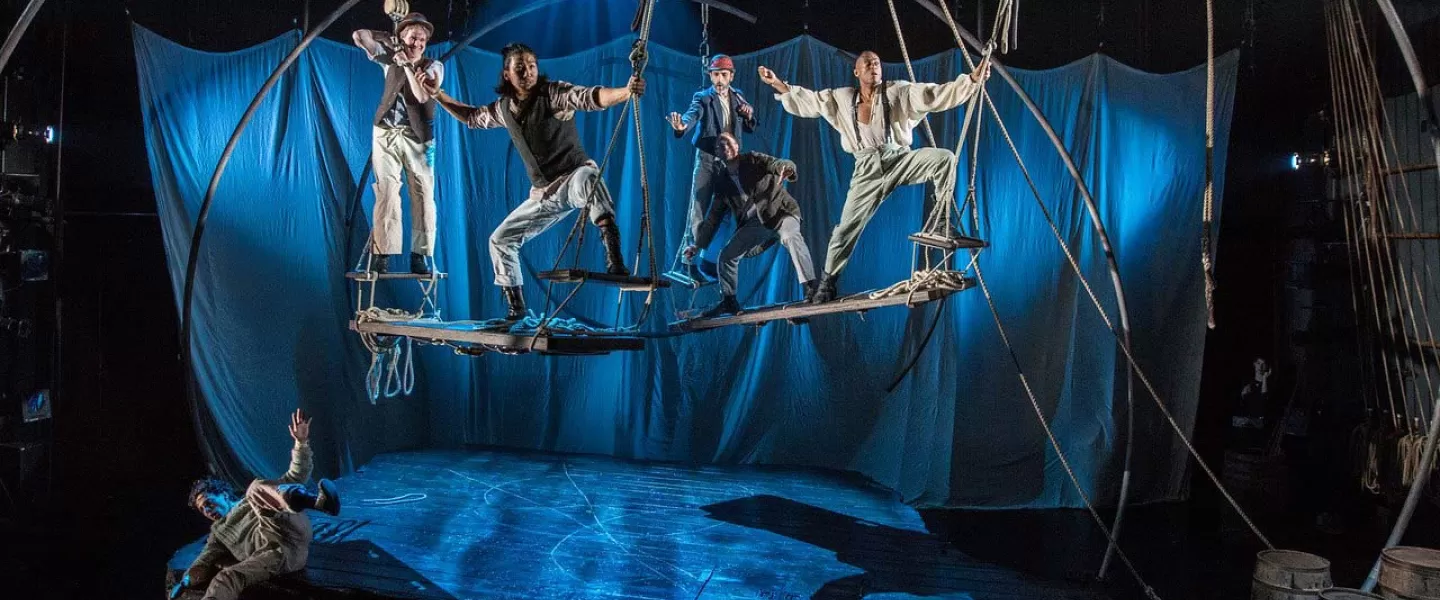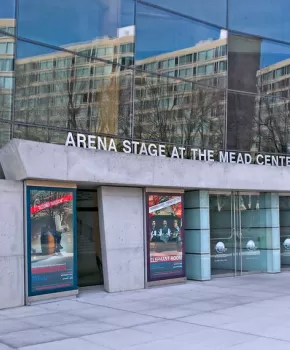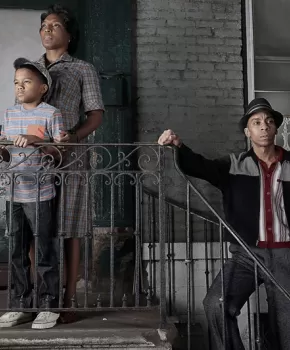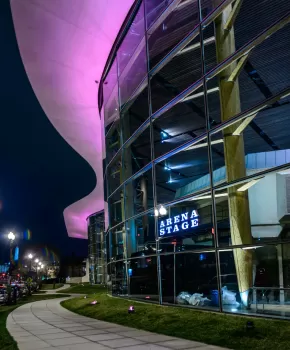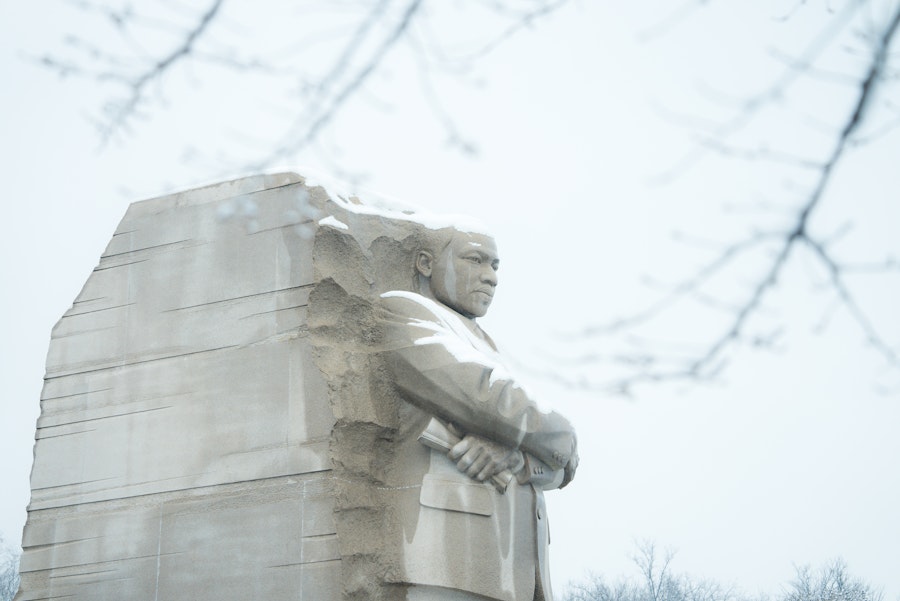Arena Stage Artistic Director Molly Smith gives her tips on catching a great performance.
Arena Stage, the stunning theater-in-the-round complex in the Southwest & The Wharf neighborhood, is an ideal venue to see compelling theater. Visitors can purchase tickets to see great American theater even on the day they visit. Molly Smith, who leads the Tony Award-winning theater complex, spills the scoop on how to score a seat at The Mead Center at Arena Stage and discusses what sets Arena Stage apart from other DC-area venues. To ensure you get the best seats, order tickets in advance, of course.
What role does Arena Stage play in the Southwest & The Wharf development?
MS: The biggest role is that without Arena Stage staying here and building this beautiful center for American theater, I don’t know that the development would have happened in the same way. When we made the decision to stay in Southwest Washington and rebuild, we knew we wanted to create a dynamic center here. After that, all the development in Southwest DC really began to move. So I would say, Arena has been the spearhead to make it happen. Every area needs a signature building and we provided it. We have a great relationship with Monty Hoffman, who is one of the developers of The Wharf. Arena supported this development in the community and with the city. It’s not unusual for arts organizations to be the catalyst for major improvements in different communities. Theaters spell audience, when there’s an audience, developers start to look and listen. When radical changes occur, like the change we made with this beautiful new center, more development and people follow.
How has the renovation and expansion changed or impacted the programs you offer?
MS: How fantastic when one has a new building and center that audience, staff and board love. It’s very rare. We spent 12 years developing the architecture, not just with an architect, but also with the staff of Arena Stage. The adjacencies in the theater focused on efficiency and beauty. That was a question I asked all the time, “How can we ensure that the form and content and the artwork that we are putting into this building work as well as the artistry does on stage? So it was always about beauty and practicality; let’s have both. We were able to succeed. It means that in a beautiful building that works well for everybody, audiences are happier, artists are happier, staff and board are happier. We now have a three-theater center. The newest theater is the Arlene and Robert Kogod Cradle for new plays, readings, and educational programs. We have a café for audiences. The shared community lobby was a real dream of mine, because I wanted all three audiences to meet and greet. Because theater is about being seen as well as seeing what’s on stage. Bing Thom, who’s a genius as an architect, was really able to sculpt the space in such a way that audiences can see each other on many, many levels. It’s just a very lively, fun space.
Is it possible to get tickets on short notice to a show at Arena Stage?
MS: On most shows it is. Here’s the beauty of it. Even for hot selling shows, we usually sell standing room tickets, which means people come in, they buy a standing room ticket. Then when there’s an empty seat, they’re able to sit down. Because all theaters have no shows. So I would say come a half-hour or 45 minutes before the show, get a standing room ticket, wander around the spaces, then see the show.
Having seen a show there recently, we can attest to the feeling of community that you get when you attend a show at Arena Stage. It’s really a high-energy place.
MS: We are focused on American artists and American ideas, and we are the largest theater in the country focusing that way in the country. I wanted the building to be bold, so that artists need to really hit the roof. As you know, our roofline is quite high! When they come up to the building for the first time, it’s “Oh, wow! I have to ensure that my work on stage is strong enough to meet the building.” It causes everybody to have to grow and stretch whether they’re artists, staff or board members. You’re absolutely right, the whole building has a huge energy and electricity about it.
It makes a very lovely place for gatherings and other events too.
MS: We have five to 10 events a week here, whether it’s for a wedding, private dinner, cocktail dinner, bat mitzvah; this space, every nook and cranny has been used. The sculptural nature of the space means it’s great for photography, as well as a great space for people mingling. People feel good in the space, and I think part of it is, it’s a stunning building. There are only four different materials—wood, cement steel and glass. That’s it. The wood makes it very warm, it’s very human material. Steel makes it strong, and the glass makes it sexy. They are a great combination with the cement—we used raw cement, polished cement, which almost looks like a mosaic. We wanted this to be a community space. We’re an anchor in Southwest Washington, with the Maine Avenue Fish Market, and now, The Wharf. Arena is what is distinctive about this community, and we want to welcome different communities from all over.
Why, during the renovation, did you maintain the Fichandler Stage in the Round. What does this configuration do to the shows in that space?
MS: First of all, it’s called Arena Stage. The Fichandler Stage is the most muscular theater-in-the-round-space in the country. The Fichandler is about big ideas, about reinventing the classic musical... Because the audience ends up part of the action. There is a conversation that happens in the Fichandler, as with any theater in the round, that extends the performance off the stage itself to a conversation with the community. And there’s nothing that represents Washington, DC more than big juicy conversations.
Along with The Wharf and the Maine Avenue Fish Market, does Arena Stage partner with any other Washington, DC organizations?
MS: We have a big partnership with Martha’s Table... We’ve hosted six job fairs. Sometimes we’ll have 500 to 1,000 people come to job fairs. We feel it’s important to help people find work. We have a relationship with the different theaters in town, there are seven artistic directors who created the Women’s Voices Theater Festival, because 78% of American plays are written by men. We really wanted to take a stand to say let’s make sure we are producing more plays by women. The Festival expanded to include over 50 theaters producing premieres of plays written by women last fall.
Any parting comments?
MS: Visitors who come for the cherry blossoms, come for all the museums, for the great restaurants, should also go see great theater while they’re in Washington, DC. Come see us at Arena Stage.
Check out The Season at Arena Stage for more information on the current schedule, and find out more about Arena’s ticket savings programs.
If you want to dive deeper into DC's theatre scene, check out the full rundown of local theaters and upcoming shows.

